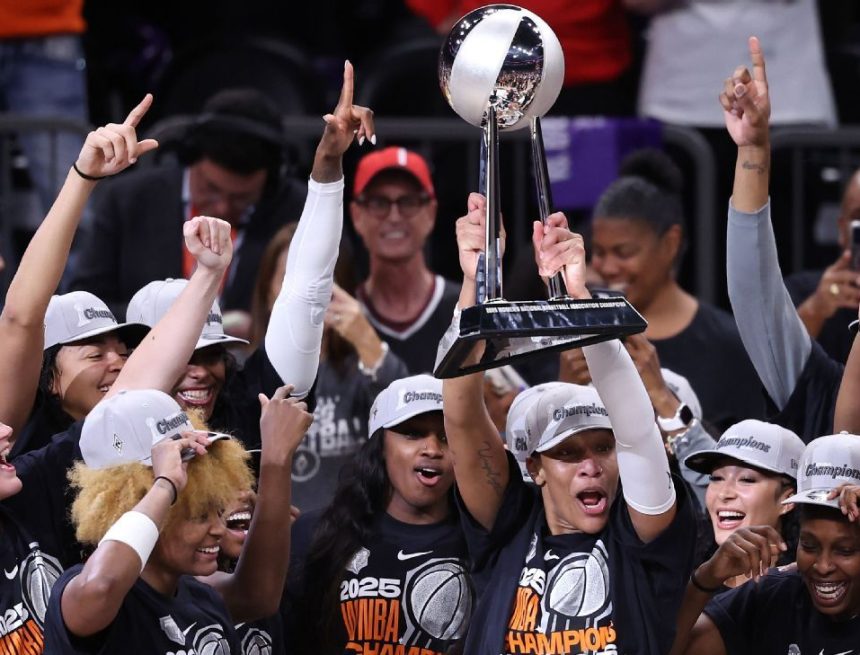The New England Patriots had a busy Tuesday, signing slot cornerback and punt returner Marcus Jones to a three-year extension worth $36 million, then trading defensive end Keion White to the San Francisco 49ers and safety Kyle Dugger to the Pittsburgh Steelers in deals that included a swap of late-round draft picks.
The team also plans to sign rookie safety John Saunders Jr. off the Miami Dolphins‘ practice squad to their 53-man roster to fill Dugger’s void, per sources familiar with the Patriots’ plan.
The moves come ahead of Tuesday’s NFL trade deadline (4 p.m. ET).
The Patriots (6-2) have been one of the NFL’s surprise teams and are in first place in the AFC East, with the five-time defending division champion Buffalo Bills (5-2) directly behind them. The Patriots beat the Bills 23-20 on the road in Week 5 and will play them at home in Week 15.
Coach Mike Vrabel, in his first season with the Patriots, continues to put his stamp on the team, with the recent flurry of moves the latest examples. Here are three top questions surrounding the moves, plus Ben Solak’s one player the Patriots could benefit trading for.

Why did New England move on from two former starters now?
White and Dugger were ideal fits in the old defensive scheme adopted by former coaches Bill Belichick and Jerod Mayo, but not so much in Vrabel’s scheme that values defensive ends who can bend the edge and safeties who can play multiple spots.
White played 74% of the defensive snaps in 2024 under Mayo, whose scheme valued White’s versatility to play multiple spots (DT, DE, OLB). In the new Vrabel scheme, the staff locked White (6-foot-5, 285 pounds) in at DE behind Harold Landry III (6-2, 252) and K’Lavon Chaisson (6-3, 255) — who are at their best bending the edge. White isn’t a natural bender as he tends to win more with pure power. White has been on the field for only 25.9% of the snaps in 2025 as a result.
Dugger is more of a box safety whose ability to play closer to the line of scrimmage was viewed as an asset by Belichick and Mayo, but it isn’t a big part of the responsibilities of a safety in Vrabel’s scheme, which values those who can play a variety of roles (which is partially why Saunders appealed to them).
As a result, both White and Dugger slipped down the depth chart. White has been anywhere between the third and fifth defensive end, depending on the week. He was a healthy scratch in Sunday’s Week 8 win over the Cleveland Browns, in part because he doesn’t play much on special teams, but also because he didn’t always seem to be playing with the same intensity as he did at the start of the 2024 season, when he totaled four sacks in the first two games.
Dugger was the No. 3 safety on the depth chart, having lost his starting role to six-year veteran Jaylinn Hawkins and 2025 fourth-round pick Craig Woodson.
How do these moves help the Patriots in the long run?
The draft pick compensation (they received two sixth-round picks in exchange for White, Dugger and two seventh-round draft picks) is modest.
So where the Dugger trade helps the Patriots most is financially. They are over the salary cap for 2026, and shedding Dugger’s $10.75 million base salary that year, and an additional $1.5 million in roster bonuses, better positions them cap-wise. Likewise for 2027, when Dugger was scheduled to earn a base salary of $11.75 million, in addition to $1.5 million in roster bonuses.
To get out of those years of the contract, the Patriots agreed to pay a significant portion of Dugger’s remaining guarantees this year, even though he’ll be playing for the Steelers.
On White, it wasn’t working out in New England and seemed like it hit a breaking point this week when he was inactive. So if his departure opens the door for the acquisition of a veteran pass rusher or the elevation and growth of a younger rusher, it could help the team in the future.
White also didn’t always seem happy in the locker room, at one point in early September telling MassLive about his demotion: “As long as I have a job, I like the fact that I have one. I could care less. They could put me at corner. If they’re going to pay me, I’ll play it.”
Is New England primed to keep moving players before the trade deadline?
Nothing would be a surprise, although the odds favor them adding instead of subtracting based on their first-place standing. Sources familiar with the team’s thinking said a running back and veteran pass rusher are the two most likely areas they will target. Now they have two extra sixth-round picks as compensation to potentially include in possible trades.
Vrabel said Monday that the personnel department is “gauging the market around the league.”
In addition, Vrabel said Monday he expects practice squad running back Terrell Jennings to be signed to the 53-man roster by the end of the week. The team also added two running backs, Rushawn Baker and Jonathan Ward, to the practice squad Tuesday.
So between Jennings and Saunders, the Patriots would have a full 53-man roster. That means if the team acquires a player in a trade, they would need to make a corresponding roster move.
0:52
Is Drake Maye becoming a fantasy superstar?
Tristan H. Cockcroft explains why Drake Maye has become a must-start fantasy QB after another strong performance.
One player the Patriots should target
New Orleans Saints wide receiver Rashid Shaheed.
Both Chris Olave and Shaheed should be targets, but Shaheed would probably cost less and also fits nicer into the spread-the-wealth style of quarterback Drake Maye.
Shaheed brings a field-tipping speed element that is woefully absent in New England’s current receiving corps, and he could be easily extended while keeping plenty of salary cap space open for a gigantic WR1 contract in March. — Ben Solak


